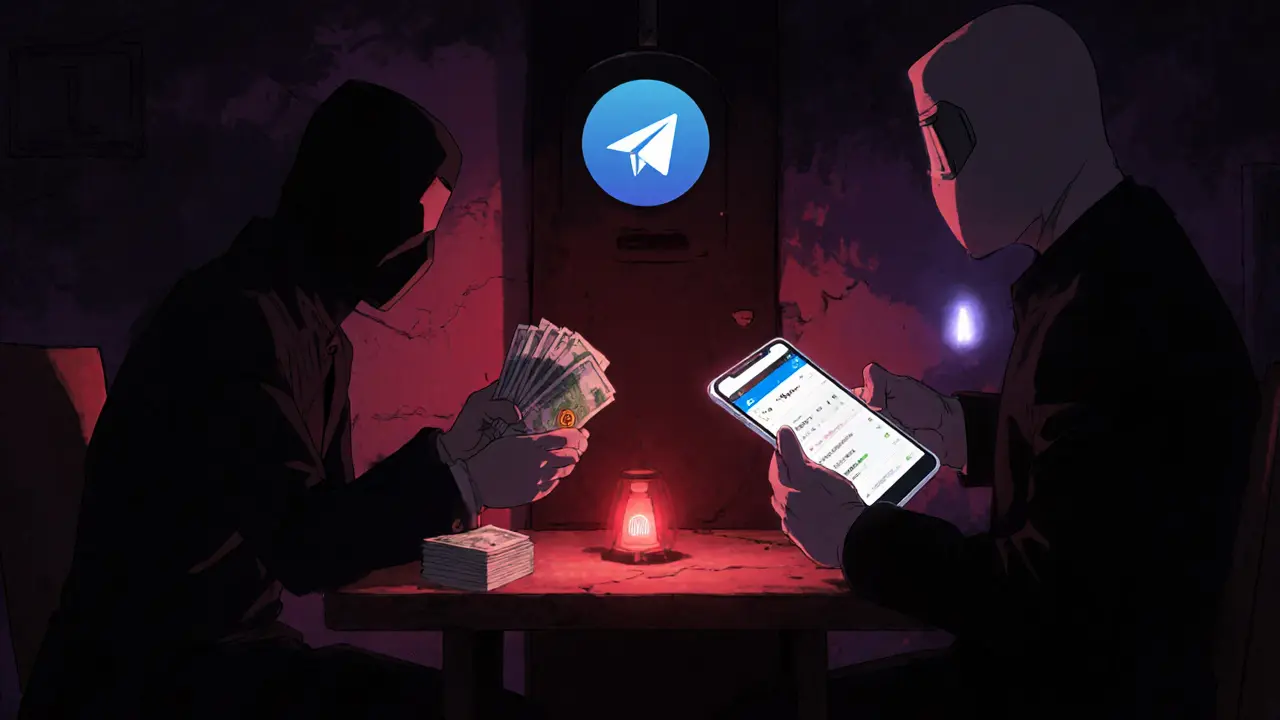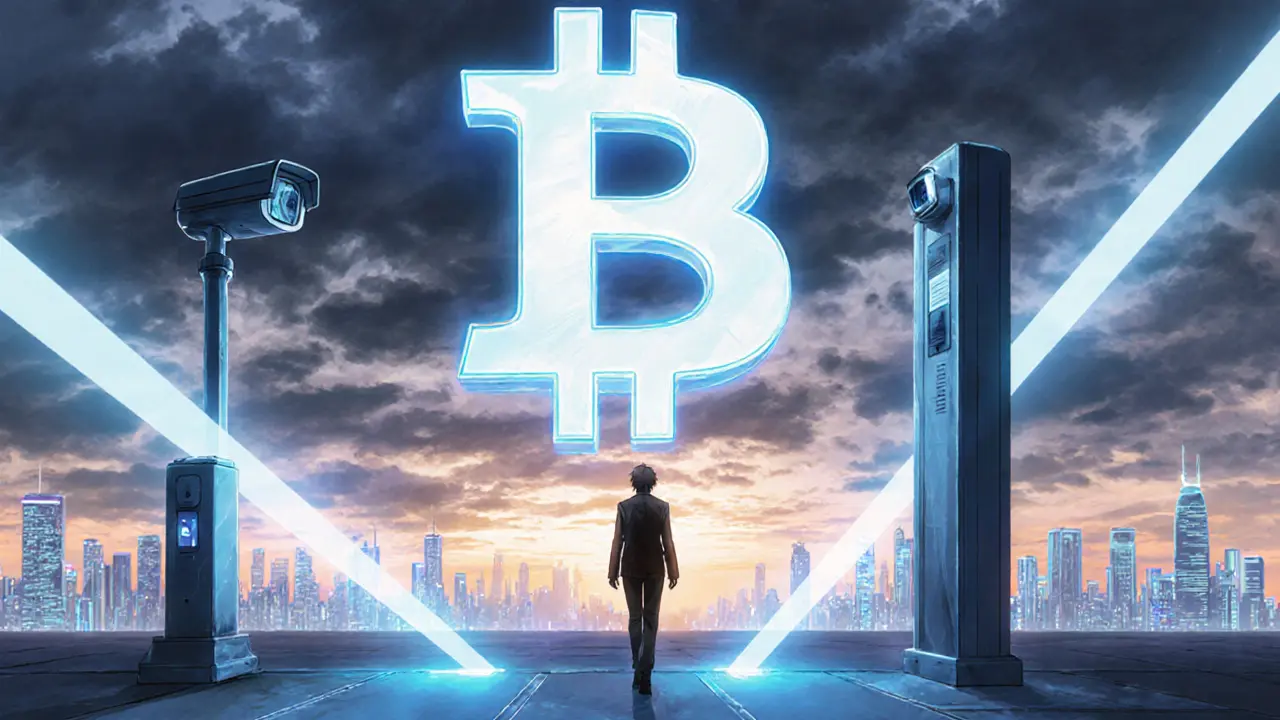Crypto Trading Risk Assessment Tool
Assess Your Risk Level
This tool calculates your risk based on your current crypto activities in Bangladesh. Based on Bangladesh Bank's 2017 ban, this assessment helps you understand your exposure to legal, financial, and operational risks.
When you hear Cryptocurrency is illegal in Bangladesh, the reaction is often "what does that mean for me?" The ban, first announced by Bangladesh Bank in 2017, still stands in 2025 and touches every facet of a trader’s life - from the courtroom to the bank account, from a phone app to a family’s credit rating. This guide walks you through the exact risks you face if you decide to trade, hold, or mine digital coins while living in Bangladesh.
Quick Takeaways
- Trading, holding, or mining any crypto is a criminal offence under the 2017 Bangladesh Bank ban.
- Legal consequences include prosecution under anti‑money‑laundering laws and possible imprisonment.
- Financial exposure is high: bank‑tracked card purchases, unregulated local agents, and no tax‑clearance guarantee.
- Operational risks rise dramatically in underground P2P groups - fraud, price manipulation, and loss of funds are common.
- Future enforcement is expected to tighten, with biometric verification and increased surveillance already causing a 30% user drop on local exchanges.
Legal Landscape - Why the Ban Exists
Bangladesh Bank’s 2017 declaration labelled crypto‑assets as “unauthorised” and prohibited “possession, issuance, trading, and use”. The rationale was three‑fold: prevent money‑laundering, stop terrorist financing, and protect the fragile financial system that had already witnessed Ponzi schemes such as MTFE. Since then, the government has reinforced the ban with anti‑money‑laundering legislation that allows prosecution of anyone caught dealing with digital tokens.
Enforcement is uneven - major exchanges like Binance and KuCoin still appear in the Google Play and Apple stores, but using them leaves a digital trail that banks can follow. In practice, the law means any discovered activity can lead to criminal charges, asset seizure, and a lasting record that may close doors to formal banking services.
Financial & Tax Risks - Money Gone, No Recourse
Most Bangladeshi traders acquire crypto in one of two ways:
- International card purchases. Buying Bitcoin or USDT with a US‑dollar credit/debit card links the transaction to a local bank account. That data is easily visible to regulators and can trigger immediate investigations.
- Local agent networks. Unlicensed “agents” exchange Bangladeshi Taka for Bitcoin, USDT, or other coins at a spread. They charge a commission but operate outside any legal framework, so fraud, price manipulation, or outright theft is a daily risk. If an agent disappears, you have no legal avenue to recover your money.
The tax picture is even murkier. The National Board of Revenue (NBR) applies the Income Tax Ordinance of 1984 to all crypto gains, meaning any profit is theoretically taxable - yet the activity itself is illegal. Reporting a prohibited transaction could expose you to prosecution, while not reporting opens you to potential back‑taxes and penalties if the authorities ever discover the activity.

Operational Risks - The Dark Side of Underground Trading
Because formal exchanges are off‑limits, Bangladeshi traders rely heavily on peer‑to‑peer (P2P) platforms and Telegram groups. The 2025 regulatory update introduced mandatory biometric verification for any local exchange, causing a sudden 30% loss of users. Those displaced migrate to less regulated channels where fraud rates have spiked.
Key operational hazards include:
- Counter‑party default. In a P2P trade, the other party can simply walk away, leaving you without crypto or fiat.
- Price manipulation. Local agents often set their own rates, which can be far above market prices, squeezing traders.
- Capital flight monitoring. Offshore stablecoin platforms have seen a 200% increase in Bangladeshi Taka deposits, flagging the activity for tighter government scrutiny.
- Mining shutdowns. Any mining operation is illegal; those that continue do so in secret, risking massive equipment seizures and legal action.
Technical & Security Risks - When Protection Doesn’t Exist
Using unregulated foreign exchanges means you have no consumer‑protection policies, no dispute‑resolution mechanisms, and often weak security practices that make phishing and hacking common. In addition, local agents may request private keys or seed phrases under the guise of “setup assistance”, effectively handing over full control of your wallet.
Without a regulated custodial service, you bear the entire burden of securing private keys, backing up wallets, and protecting against malware. A single mistake can wipe out years of savings, and there’s no legal remedy.
Socio‑Economic Consequences - Beyond the Individual
Beyond personal loss, crypto involvement can marginalise you from the formal financial system. Banks are prohibited from dealing with crypto‑related entities, so a discovered crypto trader may be denied loans, mortgages, or even basic account services. This financial exclusion can affect small business owners who rely on bank credit for inventory or expansion.
On a macro level, the massive outflow of Bangladeshi Taka to offshore platforms weakens the local currency, contributes to capital flight, and undermines economic stability - the very reasons the ban was originally introduced.

Regional Comparison - Why Bangladesh Stands Alone
| Country | Legal Status | Tax Approach | Regulated Exchanges? | Key Risk for Citizens |
|---|---|---|---|---|
| Bangladesh | Complete prohibition (2017‑present) | General income tax applies, but activity illegal | No - all are underground or foreign | Criminal prosecution, no consumer protection |
| India | Legal with regulation; crypto‑exchange licensing | 30% capital gains tax + 1% TDS on trades | Yes - licensed exchanges exist | Tax compliance, market volatility |
| Pakistan | Legal, with central bank oversight | Flat 15% tax on crypto income | Yes - regulated platforms permitted | Regulatory changes, market risk |
The table shows how Bangladesh’s outright ban forces citizens into higher‑risk, unregulated channels, while neighboring countries provide at least a legal framework and tax clarity.
Future Outlook - Risks Likely to Grow
Government signals in 2025 indicate no softening of the stance. New biometric verification rules, tighter surveillance of offshore fund flows, and public statements about “protecting financial stability” all point to intensified enforcement. Analysts warn that retroactive actions could target traders who have been quietly operating for years, meaning today’s low‑profile activity might be investigated tomorrow.
For anyone considering crypto in Bangladesh, the safest route remains staying out of the market altogether. If you already hold assets, consider moving them to secure, self‑custodied wallets and limit any further exposure until the legal environment changes - which, based on current trends, could take many years.
Frequently Asked Questions
Is owning Bitcoin illegal in Bangladesh?
Yes. Bangladesh Bank’s 2017 circular bans possession, trading, and usage of any cryptocurrency, including Bitcoin. Violations can lead to criminal prosecution under anti‑money‑laundering laws.
Can I be taxed on crypto gains if crypto is illegal?
The National Board of Revenue applies the general Income Tax Ordinance to all income, which technically includes crypto profits. However, reporting such income may expose you to legal action because the activity itself is prohibited.
What happens if my bank discovers I bought crypto with my card?
The bank can flag the transaction, report it to Bangladesh Bank, and potentially freeze your account. You may also be summoned for questioning under the anti‑money‑laundering regulations.
Are Telegram crypto groups safe to use?
These groups are unregulated and frequently used by scammers. Without any consumer‑protection mechanisms, the risk of fraud, price manipulation, and loss of funds is very high.
What are the penalties for crypto mining in Bangladesh?
Mining is explicitly outlawed. Authorities can seize equipment, levy fines, and prosecute operators under the same anti‑money‑laundering statutes that cover trading.


Comments (19)
Hey everyone! Just wanted to point out that the crypto ban in Bangladesh really puts ordinary folks in a tough spot. If you're thinking about getting into Bitcoin or any other coin, the legal risks are huge – you could face prosecution or even lose access to your bank. It’s best to stay on the safe side and keep your money in traditional savings until the rules change. Also, if you already hold crypto, consider moving it to a self‑custodied wallet where you control the keys. Stay informed and look out for each other!
The ban really limits everyday traders.
One must acknowledge the sheer absurdity of imposing a blanket prohibition on digital assets while the rest of the world advances. The Bangladeshi authorities appear to be clinging to antiquated financial doctrines, ignoring the nuanced benefits that blockchain technology can provide. Moreover, the punitive approach fuels a black‑market ecosystem rife with fraud and exploitation. It is a paradox: attempting to safeguard the economy by driving it underground, thereby magnifying the very risks they claim to mitigate. Ultimately, this policy reflects a profound misunderstanding of both economics and technology.
While the crackdown sounds harsh, it’s also a signal that the government is serious about maintaining financial stability. The enforcement mechanisms, like biometric verification, are certainly invasive, but they’re meant to deter illicit activity. Still, it feels like an overreach that punishes ordinary citizens who just want to diversify their savings. The reality is that the ban creates more danger than it prevents by pushing trade into unregulated channels.
I think the whole thing is blown out of proportion. Yes, there are risks, but banning crypto outright stifles innovation and personal freedom. Many people could benefit from the financial inclusion that crypto offers, especially in underserved regions. Rather than criminalizing users, the government should focus on education and proper regulation. A balanced approach would mitigate crime without destroying potential economic growth.
Oh, absolutely, because imprisoning people for trying to earn a few extra dollars is clearly the pinnacle of progress!
Who needs financial freedom when you can have a spotless criminal record, right?
Let's all applaud the genius policymakers who equate innovation with danger.
Nothing says "protect the people" like a blanket ban and heavy‑handed surveillance!
Bravo, Bangladesh, for setting such an enlightened example!
I hear a lot of anxiety around the crypto restrictions, and it’s understandable. If you’re already involved, try to keep your assets in a hardware wallet where only you have the keys. Talk to trusted friends or community members about safe practices-don’t go it alone. Remember, you’re not alone in navigating these challenges; many people are sharing tips and looking out for each other. Take care of your mental health too-stress over legal issues can be overwhelming.
When we examine the Bangladeshi crypto prohibition, several dimensions emerge that merit careful consideration.
First, the legal framework erected in 2017 was designed to curb money‑laundering, yet its blanket nature inadvertently fuels clandestine markets.
Second, the financial exposure of everyday users is amplified because traditional banking channels are forced to flag any crypto‑related transaction, leading to account freezes.
Third, the operational risks associated with P2P platforms cannot be overstated; without regulatory oversight, fraud rates soar, and price manipulation becomes commonplace.
Fourth, the technical security landscape is precarious-unregulated exchanges often lack robust encryption, making users vulnerable to phishing attacks.
Fifth, the tax conundrum adds another layer of complexity: the National Board of Revenue may pursue back‑taxes, but reporting such income could self‑incriminate the taxpayer.
Sixth, the socio‑economic repercussions extend beyond the individual, as participation in crypto can result in financial exclusion, barring access to loans or credit lines.
Seventh, the macro‑economic impact includes capital flight, which weakens the Taka and threatens overall stability.
Eighth, the recent biometric verification mandates signal an intensifying surveillance apparatus, further eroding privacy.
Ninth, the lack of consumer protection means any loss, whether through hacking or fraudulent agents, is irrecoverable.
Tenth, the underground nature of the market encourages the rise of unlicensed agents who may demand private keys, effectively handing over control of assets.
Eleventh, these agents often impose exorbitant spreads, eroding potential gains for traders.
Twelfth, mining operations are subject to raids and equipment seizure, adding another legal hazard.
Thirteenth, the cultural perception of crypto as a risky endeavor can stigmatize participants within their communities.
Fourteenth, comparative analysis with neighboring India and Pakistan shows that regulated environments mitigate many of these risks.
Finally, the future outlook appears grim, with projected tighter enforcement and possible retroactive actions.
In light of these multifaceted challenges, a prudent strategy for Bangladeshi citizens is to avoid crypto involvement until a clear, balanced regulatory pathway emerges.
👍 Great breakdown! This really helps paint the full picture. 🌟
Yo guys! I think we should stay optimistc even if the gov is super strict. Its definetly not the end of the world, just another challange we gotta face. Keep learning and share tips, we can survive this! 🙏
Absolutely! Staying positive and informed is the best defense. Let’s keep the conversation going and help each other out. 🌈
In accordance with the prevailing statutory provisions, it is evident that the prohibition of cryptocurrency activities in Bangladesh imposes substantial legal liabilities upon any individual who engages therein. Accordingly, adherence to the regulatory framework is advisable to avoid punitive repercussions.
Indeed, the legislation is unequivocally stringent; failure to comply may result in severe penal sanctions, including incarceration and asset seizure. The governmental stance is decidedly uncompromising.
The phylosophy behind banning crypto seems rooted in fear rather than rational derisking. When you strip away the sensationalism, the core issue is control over monetary flows. Yet the attempt to outlaw an entire class of assets often creates more chaos than order. It also raises ethical questions about personal autonomy. In the end, a balanced regulatory approach might serve better than an absolute prohibition, which only pushes the activity deeper into the shadows.
I respect the perspective shared here. It’s important to consider both the legal and philosophical aspects when discussing policy.
Here’s a practical tip: if you already possess crypto, migrate it to a non‑custodial wallet you control, preferably a hardware device. This mitigates the risk of exchange hacks and limits exposure to potential legal actions, since you’re not holding the assets on a platform that could be seized. Of course, remember that even a self‑custody solution isn’t a legal shield; it merely reduces the immediate vulnerabilities. Always back up your seed phrase in a secure, offline location-think fire‑proof safe or a safety deposit box. And, if you’re truly concerned about enforcement, consider diversifying into assets that aren’t under the same regulatory scrutiny.
While the aforementioned advice is technically sound, it must be emphasized that engaging in prohibited activities, regardless of mitigation strategies, remains ethically indefensible. The rule of law should not be bypassed under the guise of financial ingenuity; compliance is paramount.
Sending love to everyone navigating these tough rules! 🌟 Remember, you’re not alone-keep sharing knowledge and stay safe. 🙌
From a mentorship perspective, it’s critical to adopt a risk‑adjusted framework when advising clients on exposure to unregulated crypto ecosystems. Incorporating compliance checkpoints, such as KYC‑lite verification for peer‑to‑peer transactions, can reduce operational risk. Moreover, leveraging portfolio diversification strategies-allocating a capped percentage of net worth to high‑volatility assets-helps preserve capital integrity. Ultimately, blending regulatory awareness with sound financial engineering yields a sustainable approach.